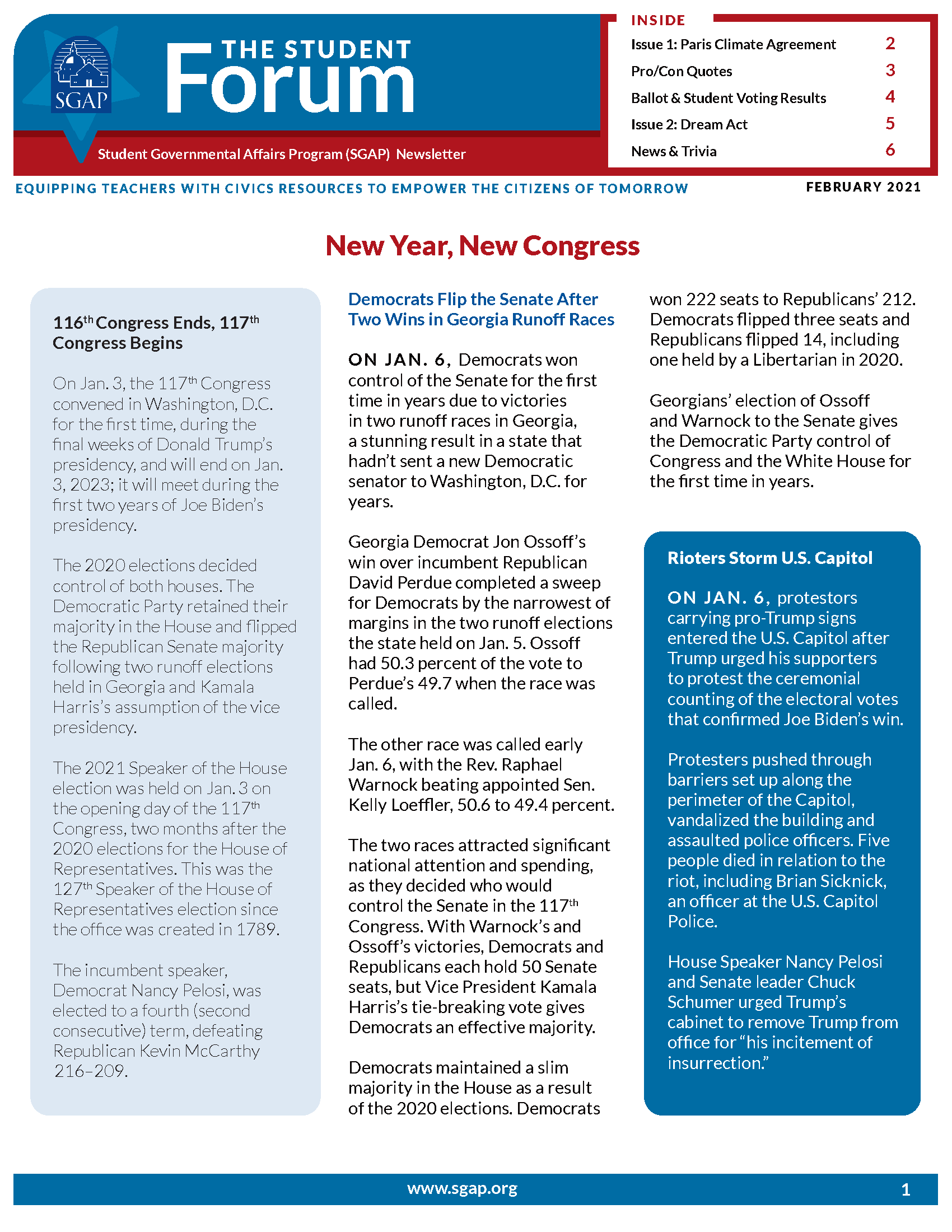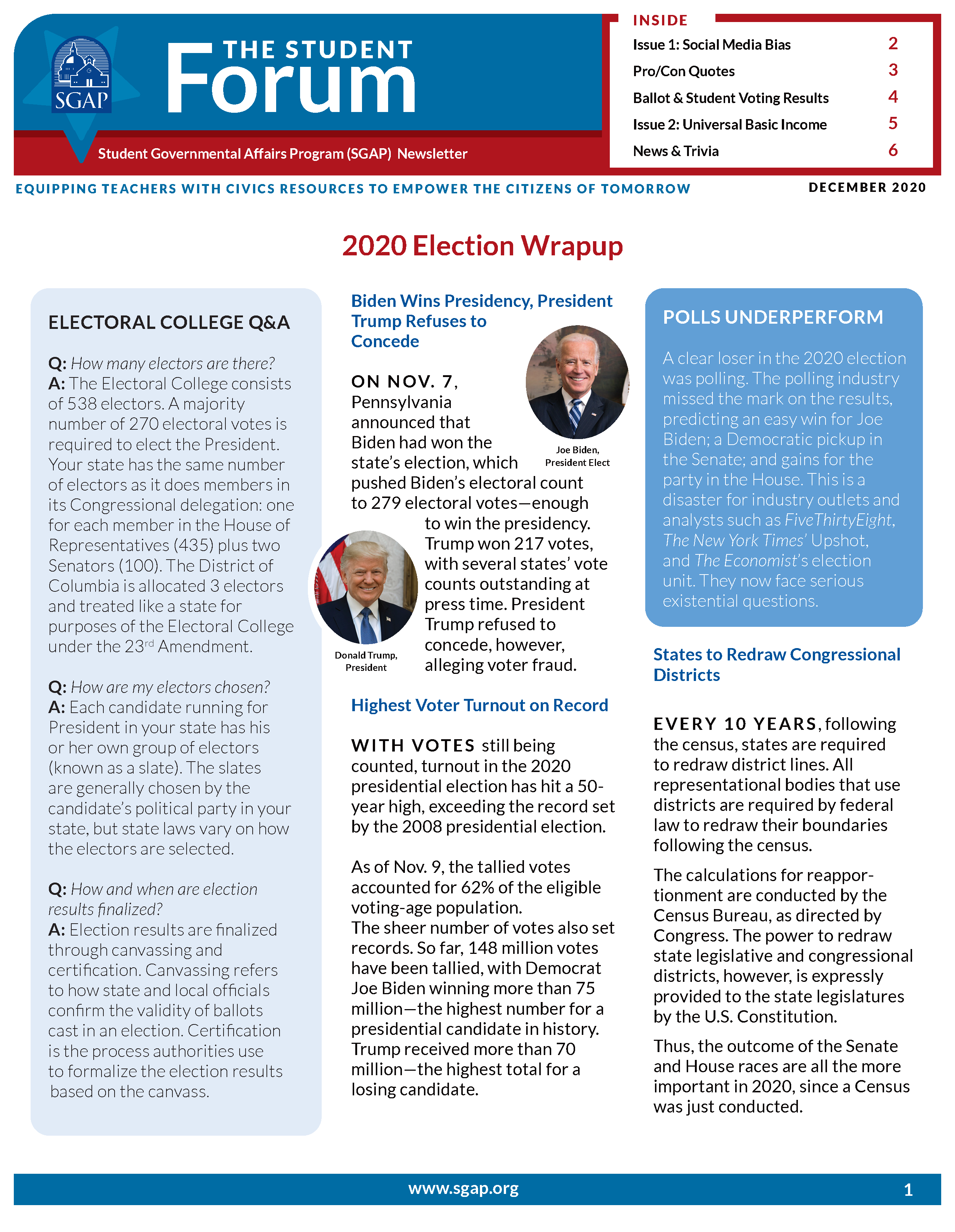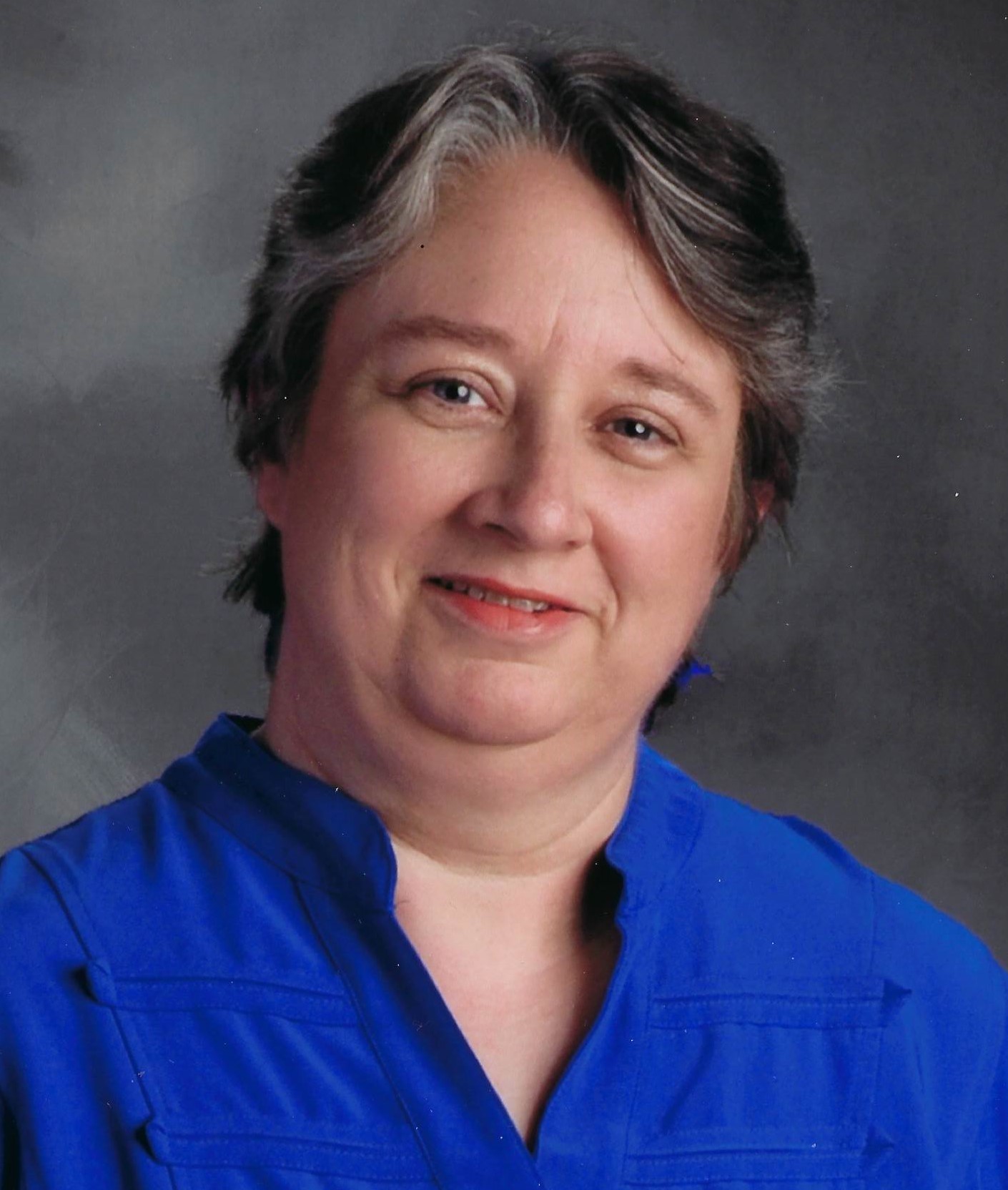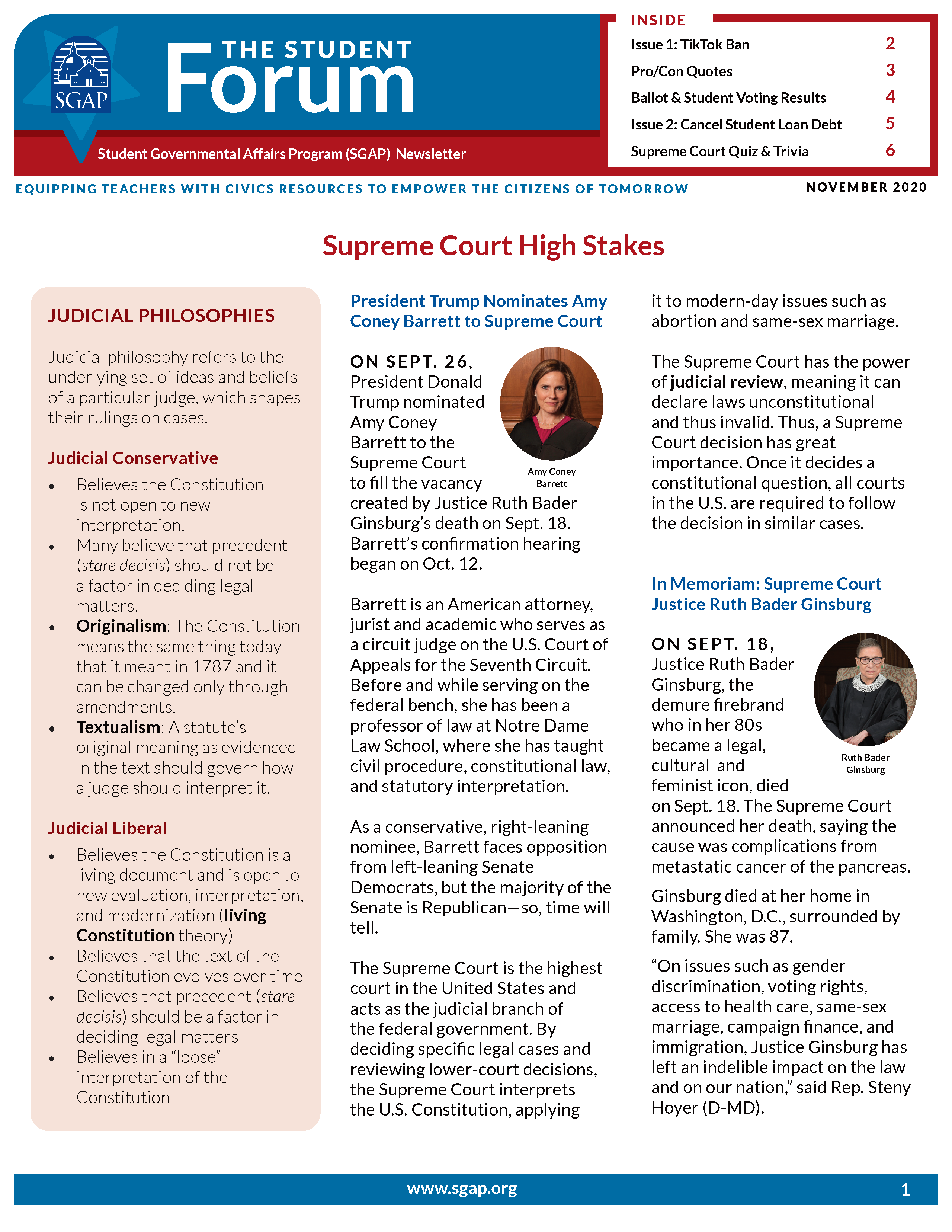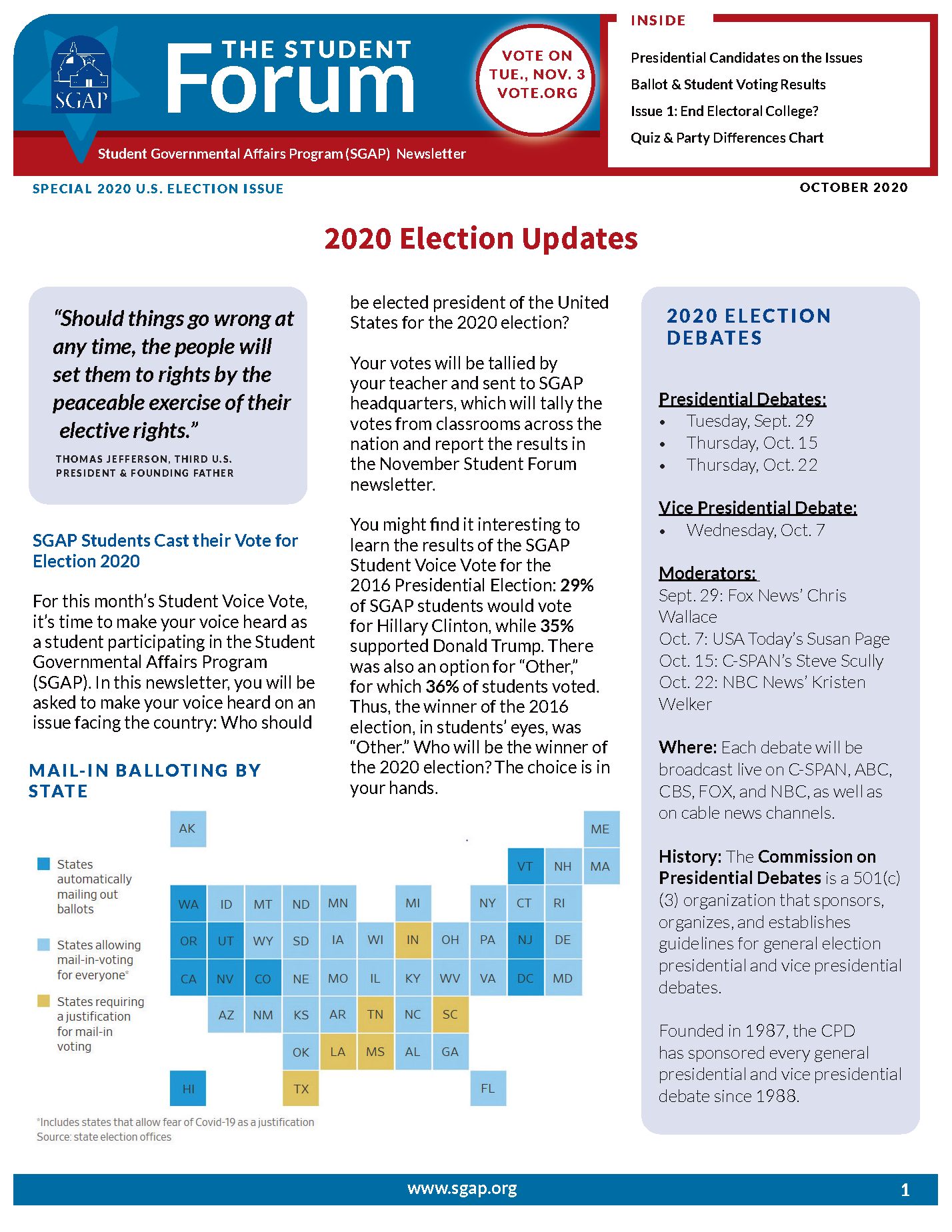RESEARCH LINKS
Issue 1: Minimum Wage
Congress.gov: H.R.603, “Raise the Wage Act of 2021” https://bit.ly/3rJJwgC
U.S. Department of Labor: “Minimum Wage” https://bit.ly/3rVLUkP
Congressional Budget Office: “Budgetary Effects Raise the Wage Act of 2021” https://bit.ly/371TmCA
National Congress of State Legislatures: “State Minimum Wages” https://bit.ly/3p6PVAN
UC Berkeley Labor Center: “The Public Cost of a Low Federal Minimum Wage” https://bit.ly/2MOQ1QK
raisetheminimumwage.com: “Raise the Minimum Wage News” https://bit.ly/3pfBdaF
Issue 2: Keystone XL Pipeline
White House: “Executive Order Protecting Public Health and Environment” https://bit.ly/3qfqTAX
National Resources Defense Council: “What is Keystone Pipeline?” https://on.nrdc.org/3acrOg6
TC Energy: “Keystone XL” (from the company that owns the pipeline) https://www.keystonexl.com
U.S. Chamber of Commerce Global Energy Institute: “Background Keystone XL” https://bit.ly/2ZaixOY
The Guardian: “Biden Can Be Our Climate President by Ending Pipeline Projects” https://bit.ly/3tMnGLt
Fox News: “Manchin Pens Letter Asking Biden to Reverse Pipeline Termination” https://fxn.ws/3tHtjdI
DISCUSSION QUESTIONS
Issue 1: Minimum Wage
- Do you support or oppose raising the minimum wage? If you were speaking to a person who disagreed, what is the strongest argument in support of your position?
- If you were a business owner, would you want the minimum wage to increase? Why or why not?
- What are two arguments against raising the minimum wage? What are two arguments in favor of raising the minimum wage?
- How is a minimum-wage worker’s life changed as a result of lifting the minimum wage from $7.25 per hour to $15 per hour?
- Places like New York, Oakland, San Francisco and Seattle have raised the minimum wage in their cities. Why do you think these places have raised their municipal minimum wage?
Issue 2: Keystone XL Pipeline
- What are some potential benefits of the pipeline? How about potential drawbacks?
- In what ways does the decision we make today about the Keystone XL Pipeline affect people in the future?
- The Biden administration cancelled construction of the Keystone XL Pipeline, but the Trump administration supported it. What might account for such differing views on construction of the pipeline?
- What are some of the reasons that environmentalists oppose the Keystone XL pipeline expansion?
- Do you think that addressing climate change is an issue that should be prioritized over creating jobs? Are these options mutually exclusive?


